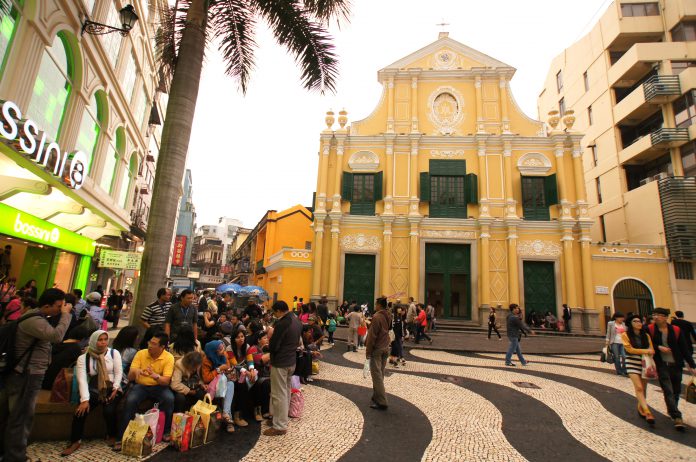Establishing a travel bubble between Guangdong Province, Hong Kong and Macau could be sufficient to recover the local tourism market, especially in terms of gaming revenues, according to Desmond Lam, Professor in Integrated Resort and Tourism Management at the University of Macau Faculty of Business Administration.
“I think it would be very beneficial. I don’t expect the gaming revenue to shoot up to the previous levels, but just opening up [the borders] with Hong Kong would mean a lot to the gaming and F&B sides. It would be sufficient for the post-Covid-19 pandemic recovery and it is what we need. We just have to fight for it,” the UM Professor stated to Macau News Agency today (Wednesday).
The hotel and tourism academic held a seminar today on post-pandemic economic recovery organised by the France Macau Chamber of Commerce.
Currently, a quarantine exemption system has been established between Macau and Zhuhai, but with plans to expand an easing of entry restrictions to other cities in Guangdong Province or Hong Kong still on the works.
Of the city’s 38 million visitors reported in 2019, 18.7 million came from Guangdong and 7.3 million from Hong Kong, showing the importance of these two markets to the city.
Meanwhile, in the first four months of this year, the number of visitors has plunged by 76.7 per cent year-on-year to some 3.2 million, with gross gaming revenues falling by 73.7 per cent to some MOP33 billion between January and May.
Recovering the near short trip and short term stays markets would then be a kickstart to the local economy that many other touristic cities do not have at their disposal, Lam considered
The researcher also noted that, considering the higher risk of elderly people, that sector would be less likely to travel in the future, which, considering that the average age of gamblers coming to Macau was about 40 years, could be another positive for its recovery prospects.
“Macau is in better shape than many other cities […] and we are in a good position for the post-pandemic recovery,” Professor Lam stated.
However, Lam noted that, even with a recovery of visitors from the nearby markets, visitor spending would probably be more reduced than before as the pandemic impacted the economy and disposable income in the region.
“I think it is very likely they will not spend the same amount of money as before because they might limit their visits in terms of days, take shorter trips […] and maybe limit their exposure to areas that might seem too crowded. I think spending might drop per visitor, but at least there will be some expenditure,” he told MNA.
The researcher underlined the importance of the city to showcase to travellers the success of local efforts to avoid Covid-19 cases, with no new confirmed cases for almost 80 consecutive days, while local properties advised to implement well-being policies or have a well-being adviser that could assure health prevention policies are included.
Other goals for post-pandemic recovery would also involve having strict hygiene and crowd control measures, not just for tourists, but also for local residents while requiring the government and the tourism industry to work together.
Professor Lam also commented that it might be a “good time” to rethink long-term strategies, such as the focus given on increasing mass market as part of local diversification efforts, with the importance of the VIP sector maybe having to be re-evaluated.
“We might have to relook at mass tourism issues and at what point we have to stop […] and focus more on quality customers,” the researcher stated.





















